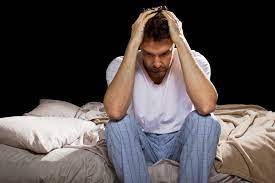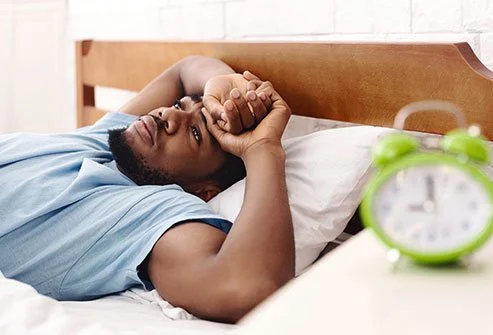Do you often have trouble sleeping at night? Are you feeling exhausted during the day, and can’t seem to get your energy back? You’re not alone! Millions of adults around the world are struggling with sleep problems. In this blog post, we will discuss some common sleep issues that adults face and provide solutions for them. We will also talk about how to create a bedtime routine that will help you get a good night’s sleep. So, if you’re ready to finally get the rest you deserve, keep reading!
Contents
What Are Sleep Disorders?

Sleep disorders are medical conditions that interfere with your ability to sleep. They can make it difficult for you to fall asleep, stay asleep, or get enough restful sleep. Sleep disorders can be caused by physical or mental health conditions, medications, work schedules, stress, and other factors. These disorders are different from occasional sleeplessness, which is usually caused by a one-time event such as an exam or a stressful work deadline. Sleep disorders are chronic conditions that can last for weeks, months, or even years.
Sleep issues in adults are quite common. In fact, according to the National Sleep Foundation, 50-70 million Americans suffer from sleeping issues as adults or as one might say, sleep disorders. The most common sleep disorder is insomnia, which affects 30-40% of adults. Other common sleep disorders include sleep apnea, restless legs syndrome, and narcolepsy.
What Are Some Common Sleep Issues In Adults?

Many different types of sleep issues can affect adults. Some of the most common sleep disorders include:
- Insomnia: This is the most common sleep disorder, and it can be caused by a variety of things, including stress, anxiety, depression, medications, and more. If you have insomnia, you may have trouble falling asleep or staying asleep.
- Sleep apnea: This is a condition in which you stop breathing for short periods of time while you sleep. It can be caused by obesity, smoking, and other factors. If you have sleep apnea, you may snore loudly or feel very tired during the day.
- Restless legs syndrome: This is a condition in which you have an urge to move your legs, especially when you’re trying to sleep. It can be caused by stress, anxiety, pregnancy, and more. If you have restless legs syndrome, you may find it difficult to fall asleep or stay asleep.
- Sleep paralysis: This is a condition in which you are unable to move your body when you wake up or fall asleep. It can be caused by stress, anxiety, sleep deprivation, and more. If you have sleep paralysis, you may feel like you’re paralyzed or stuck in one position.
- Snoring: This is a common problem that can be caused by obesity, smoking, alcohol use, and more. If you snore, you may have trouble sleeping or you may wake up feeling tired.
- Sleepwalking: This is a condition in which you get up and walk around while you’re asleep. It can be caused by sleep deprivation, stress, anxiety, and more. If you sleepwalk, you may not remember what happened when you woke up.
- Narcolepsy: This is a condition in which you feel excessively sleepy during the day. It can be caused by sleep deprivation, stress, anxiety, and more. If you have narcolepsy, you may find it difficult to stay awake during the day.
As you can see, there are many different types of sleep issues or disorders that can affect adults. If you’re having trouble sleeping, it’s important to see a doctor so they can help you figure out what’s causing your sleep issues as adults.
What Causes Sleep Issues In Adults?

There are many different factors that can contribute to sleep issues in adults. Some of the most common include:
- Stress: Stress can make it difficult to fall asleep and stay asleep. If you’re stressed, your mind may be racing, which can make it hard to relax and fall asleep.
- Anxiety: Anxiety can also make it difficult to fall asleep and stay asleep. If you’re anxious, you may be worrying about things that have happened during the day or things that will happen tomorrow. This can make it hard to relax and fall asleep.
- Depression: Depression can also make it difficult to sleep. If you’re depressed, you may find yourself lying in bed awake for hours, feeling hopeless and helpless.
- Medications: Some medications can cause sleep problems. If you’re taking medication for a chronic condition, such as high blood pressure or diabetes, talk to your doctor about the possibility of side effects that could affect your sleep.
- Sleep deprivation: Sleep deprivation can also cause sleep problems. If you’re not getting enough sleep, you may find it difficult to fall asleep or stay asleep.
- Overworking: If you work long hours, you may find it difficult to fall asleep at night. This is because your body is still in “work mode” and it’s hard to relax and fall asleep.
- Circadian Rhythm Disorder: This is a condition in which your body’s natural sleep-wake cycle is out of sync. This can be caused by jet lag, shift work, or working late at night.
- Nightmares: Nightmares can also cause sleep problems. If you have nightmares, you may find yourself waking up in a sweat or feeling scared.
- Caffeine consumption: Coffee, tea, and energy drinks can all cause sleep problems. Caffeine is a stimulant, which means it can make it difficult to fall asleep.
- Alcohol: Alcohol can also cause sleep problems. Although alcohol may make you feel sleepy at first, it can actually disrupt your sleep later on in the night.
There are many different factors that can contribute to sleep problems in adults. If you’re having trouble sleeping, it’s important to talk to your doctor so they can help you figure out what’s causing your sleep problems.
Who Is More Likely To Have Sleeping Problems?

There are certain groups of people who are more likely to have sleep issues as adults. These include:
- People with chronic health conditions: People with chronic health conditions, such as heart disease, diabetes, and respiratory disorders, are more likely to have sleep problems.
- People with mental health disorders: People with mental health disorders, such as anxiety and depression, are also more likely to have sleep problems.
- People who are overweight: People who are overweight are more likely to have sleep apnea, which is a condition that can cause snoring and interrupted breathing during sleep.
- Women: Women are more likely than men to have insomnia, which is a type of sleep disorder that makes it difficult to fall asleep or stay asleep.
- Older adults: Older adults are more likely to have sleep problems, such as insomnia and sleep apnea.
- Pregnant women: Pregnant women are more likely to have sleep problems, such as insomnia and restless leg syndrome.
- People with trauma: People who have experienced trauma, such as soldiers and survivors of abuse, are more likely to have sleep problems.
There are certain groups of people who are more likely to have sleep problems. If you’re in one of these groups, it’s important to talk to your doctor about ways to improve your sleep.
How Does It Affect?

Sleep problems can have several long-term and short-term effects on our health.
- High blood pressure: If you don’t get enough sleep in the morning, your blood pressure may be higher during the day. This is because sleep deprivation can lead to your body stressing more than usual.
- Obesity: Sleep deprivation can lead to your body craving high-calorie foods. This can lead to weight gain over time.
- Diabetes: Sleep deprivation can also lead to insulin resistance, which can increase your risk for type II diabetes.
- Mood disorders, such as anxiety and depression: Sleep deprivation can also cause anxiety. Sleep deprivation causes more stress. This can make it difficult to concentrate and make decisions as well as to enjoy the activities that you used to enjoy and make it difficult to feel positive about life in general.
- Heart disease: Sleep deprivation can also increase your risk for heart disease. This is because sleep deprivation causes high blood pressure and other cardiovascular problems.
- Stroke: Sleep deprivation can also increase your risk for stroke. This is because sleep deprivation causes high blood pressure and other cardiovascular problems.
- Memory problems: Sleep deprivation can also cause memory problems. Sleep deprivation can lead to your brain not having enough time to consolidate memories.
- Daytime fatigue or sleepiness: Sleep deprivation can lead to your body feeling tired all day long.
- Irritability or moodiness: Sleep deprivation can also cause irritability or moodiness. This is because when Sleep deprivation can lead to your body stressing more than usual.
- Accidents or mistakes:When you’re sleep-deprived you are more likely to have accidents or make mistakes. This is because your reflexes are slower and your decision-making is impaired when you’re sleep-deprived.
These are some of the physical and mental effects of sleep deprivation. As you can see, sleep deprivation can have serious consequences for our health. If you’re having trouble sleeping, it’s important to talk to your doctor so they can help you figure out what’s causing your sleep problems.
How To Get Better Sleep?
There are many ways you can get better sleep, either by making changes to your lifestyle or by using sleep aids.
Self-help

If you’re having trouble sleeping, there are some things you can do to try to improve your sleep.
- Create a bedtime routine: It can be helpful to create a bedtime routine to help you relax and prepare for sleep. This could include taking a warm bath, reading a book, or listening to calming music.
- Avoid caffeine and alcohol before bed: Caffeine and alcohol can both interfere with sleep. It’s best to avoid them in the evening or before bed.
- Exercise during the day: Exercise can help you sleep better at night. Just be sure to avoid exercise close to bedtime as it can make it harder to fall asleep.
- Create a comfortable sleeping environment: Creating a comfortable sleeping environment can also help you sleep better. This includes things like making sure your room is dark, quiet, and cool.
- Avoid trying too hard to sleep: If you can’t fall asleep, it’s okay to get out of bed and do something else for a little while. Trying to force yourself to sleep will only make it harder to fall asleep.
- Avoid screens before bed: The light from screens can interfere with sleep. If you must use a screen before bed, consider using blue light-blocking glasses. These are just some of the things you can do to try to improve your sleep.
- Use your bed to sleep only: It’s important to create an environment that is conducive to sleep and limit activities in bed to things that promote sleep. This means no watching television, working on the computer, or using your phone in bed.
- Avoid or limit naps: Napping too close to bedtime can interfere with sleep. If you must nap, try to do it earlier in the day and for no longer than 30 minutes.
- Avoid large meals or beverages before bed: Eating a large meal or drinking a lot of fluids can make it harder to sleep. It’s best to avoid them in the evening or before bed.
- Wind down before bed: It can be helpful to do things that help you relax before bed. This could include reading, taking a bath, or listening to calming music.
- Don’t put up with pain: If you’re in pain, it can be hard to sleep. Talk to your doctor about ways to manage your pain so it doesn’t interfere with sleep.
These are just some of the things you can do to try to improve your sleep. If you’re still having trouble sleeping, it’s important to talk to your doctor so they can help you figure out what’s causing your sleep problems.
Professional-Help

If you’re still having trouble sleeping, there are some things you can do to get professional help for your sleep problem.
- See a doctor: If you’re having trouble sleeping, it’s important to talk to your doctor so they can help you figure out what’s causing your sleep problems.
- Get a sleep study: A sleep study can help your doctor diagnose sleep issues or disorders in adults and figure out the best treatment for you.
- Get counseling: Counseling can be helpful If stress and anxiety are the cause of your sleep issues.
These are just some of the things you can do to get professional help for your sleep problem. If you’re still having trouble sleeping, it’s important to talk to your doctor so they can help you figure out what’s causing your sleep problems.
Medication
In some cases, sleep medication may be necessary to help you get the sleep you need.
- Stimulants: If you have narcolepsy, your doctor may prescribe a stimulant to help you stay awake during the day. These include Diphenhydramine (For example, Sominex, Nytol) and Doxylamine (For example, Unisom).
- Antidepressants: If you have depression, your doctor may prescribe an antidepressant to help you sleep. These include Trazodone (Desyrel), Amitriptyline (Elavil), and Doxepin (Sinequan).
- Anti-anxiety medications: If you have anxiety, your doctor may prescribe an anti-anxiety medication to help you sleep. These include Lorazepam (Ativan), Diazepam (Valium).
- Anticonvulsants: If you have epilepsy, your doctor may prescribe an anticonvulsant to help you sleep. These include gabapentin, pregabalin, and topiramate.
- Sedatives: If you have insomnia, your doctor may prescribe a sedative to help you sleep. These include, zolpidem, eszopiclone, and temazepam.
Doctors usually prescribe this medicine for Sleeping issues. It’s important to talk to your doctor about all of your options and what might be right for you.
Conclusion
Lastly, don’t forget that you’re not alone in this. Millions of people suffer from sleep disorders or issues that adults face. There are many resources available to help you get the sleep you need.
If you’re still having trouble sleeping, it’s important to talk to your doctor so they can help you figure out what’s causing your sleep problems. There are many things you can do to try to improve your sleep, and there are also many professional resources available to help you get the sleep you need. Don’t forget that you’re not alone in this, and many people can help you through this.
Therapy Mantra is the leading provider of mental health services around the globe. With a team of highly qualified and experienced mental health professionals, we are committed to providing the best possible care to our patients. Therapy Mantra is always here to help you improve your quality of life! You can also book an online therapy session or download our free Android or iOS app.


